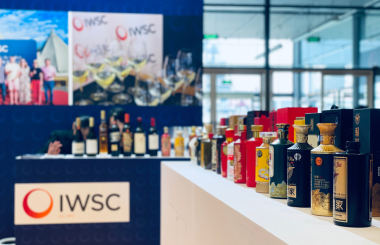What is the allure of unique spirits – are they a taste sensation or just a fad?
The premium liqueur market seems to be bucking a wider trend of declining sales, with new products coming to market despite the tough economic climate.
Consumers are moving away from the lower end of the market and discovering the better value and taste in premium products.
Myles Cunliffe, director of Mixology Group, has suggested that consumers are starting to realise that a product made with greater care and attention brings about more natural flavours and improved taste.
"Consumers are also becoming more educated and trying new and interesting products," he noted.
For this reason, new unique spirits are entering the back bars of establishments in the hope of capturing this market.
One notable trend is the release of seasonal liqueurs. Last month saw the launch of Rhuby, a premium drink made from spring-grown vegetable rhubarb.
"The idea behind a rhubarb liqueur came out of these childhood memories and the lack of presence of this loveable flavour in any well-stocked cocktail bar," Ylva Binder, founder of Rhuby, told The Drinks Business.
"My memories of biting into a stalk of rhubarb as a child have always stayed with me. I loved it and for me it was a feeling of complete happiness. Rhuby is as close as I can get to bottling that feeling."
It is distilled in Sweden at the country's first organic distillery, which hosts its own annual rhubarb festival.
And it is just one example of a liqueur that will attract sales both from its unique ingredient but also from the alluring bright pink/red bottle on the back bar.
Mr Cunliffe explained that the days of day-glo spirits and random flavours might have now gone, but new markets for interesting flavours are emerging.
Elderflower liqueur St Germain and ginger spirit Domain de Canton are experiencing strong demand, he noted, while older spirits that once seemed unique are making a comeback, like the cherry-flavoured Maraschino and violet-flavoured Violette liqueur.
What might come as a surprise is the popularity of tobacco liqueur Perique among drinkers.
"This uses one of the rarest tobaccos on earth, and adds a greater depth to the cocktails that we use it in," Mr Cunliffe said, noting that all nicotine content has been removed, making it safe and non-carcinogenic.
"Another massive surprise success would be the tequila/coffee combo from Patron called Patron XO Café," the expert observed.
"This is a delicious blend of coffee and tequila, and when served straight from the freezer is delicious by itself or works incredibly well in classic drinks like the Espresso Martini."
In addition to the trend for unique flavours, the lines between food and drink are being blurred even further, with bartenders and chefs creating their own unique combinations.
"You may for example get a lime sorbet as a desert on which you can pour a measure of tequila and orange liqueur over to create your own 'margarita' at the table," Mr Cunliffe explained.
While this could still be considered as a fad, it serves to highlight how customers are keen to try inventive flavour combinations, while it also adds a piece of theatre to the dining/drinking experience, just as unique spirits aim to do.
However, it is also possible that within the UK, unique flavours will remain a fad as consumers become enamoured with nostalgia.
Thanks to the media and marketing association English Wine Producers, home-grown products are making a definite comeback in the sensibilities of the British drinker. English wine is being promoted ahead of the summer and as its quality is improving, the push could lead English wine to stay on top once autumn arrives.
This in turn could affect the spirits industry, according to Mr Cunliffe, who suggested that the rise in quality in English wine could see resurgence in vermouth and aromatised wines distilled in the UK.
He even predicted that this vote of confidence in home-grown spirits could lead to more distillers producing unique liqueurs like sloe and damson gin, bringing the UK's spirit industry back to life


